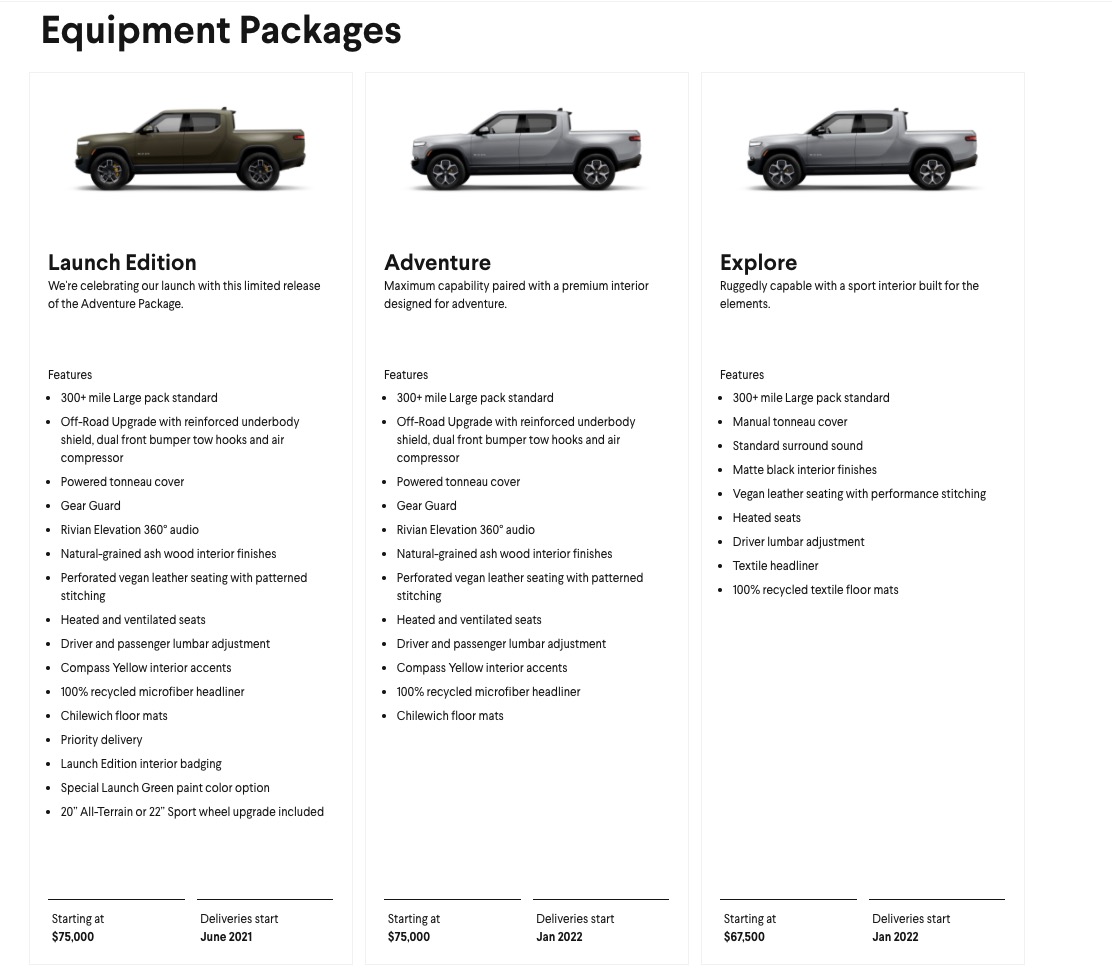A former controller and CFO of the state of California, Steve Westly is passionate about government. The onetime eBay exec and early Tesla board member has also been a proponent of clean energy for roughly 30 years, so he’s feeling optimistic right now, with former U.S. VP Joe Biden amassing a growing number of electoral votes and widening his leading Donald Trump as he inches toward an election win.
We talked earlier today with Westly, who founded the venture firm The Westly Group 13 years ago and which is currently raising up to $250 million for a fourth fund, according to SEC paperwork filed earlier this week. We wanted to know whether he thinks Biden will be able to achieve any part of his climate plan in the likely scenario that Republicans continue to control the Senate. We also wondered what he makes of VCs leaving California, and where he sees the most opportunities right now. We kicked off our conversation with the news of the day. Our chat has been edited lightly for length.
TC: As we talk, Joe Biden looks to be on the cusp of winning the U.S. presidential election while Donald Trump continues to tweet about taking his claims about a rigged election to the Supreme Court. Are you concerned about that rhetoric, given that Republicans don’t seem to be pushing back against it?
SW: You have to be worried about such things, but I think most people are looking at the big picture. This is not going to be a 270 to 268 [electoral college] vote. Biden might get 290 to 306 [electoral votes]. It’s a decisive difference. He also received more than 4 million more [popular] votes than Trump. The people have spoken, and they’ve spoken loudly.
There are rules in most states that say if you aren’t within a percent or half a percent — i think [Biden has a] 1.6% [advantage] in Nevada and 1.4% [lead in] Arizona right now — there won’t be a recount. I think his lead in Pennsylvania will rise to 100,000, so the window [for a Trump win] is diminishing pretty quickly.
I am also seeing more Republican officials, like Senator Bob Toomey of Pennsylvania, saying that we count the votes, we follow the rules, what the president is doing is irresponsible, and it’s time to move on.
TC: You’re raising a fund that you’ve already told me you won’t talk about, citing SEC rules, but I’m wondering: has Westly Group’s mandate has changed over time? I remember when the firm was first formed that it was one of the only pure ‘cleantech’ venture firms, but it seems like it has broadened out a bit.
SW: Sustainable energy has become the new hot thing and it makes me laugh because I’ve been involved in energy for 30 years [including in government roles]. I wrote two books on the future of energy in the ‘80s, so I’ve been at this a bit.
Our thesis continues to be that there are revolutions occurring in smart energy, mobility and smart buildings, and they are being driven by renewable energy, which costs less than carbon-based fuels in virtually every part of the world today, from the U.S. to India to Africa. That’s not a political statement; it’s a fact.
Fully 70% of new energy coming online now is sustainable, so people are smart to pay attention to that. Because costs are going down and the cost of storage is going down precipitously — the cost of lithium ion batteries came down so much that we reached an inflection point in 2018, and the cost of a kilowatt per hour costs less than $150 now — everybody is going electric.
Carmakers haven’t wanted to say this publicly because it freaks out shareholders, but we’re headed toward a world where the majority of energy will be sustainable in the near future and most of the cars will be electric and that will happen a lot faster than people think.
Buildings play a key role, too, because they’ve historically been dumb; now they’re digitized buildings with power storage, and soon every home, building, hospital, and university [will run off digitized energy] and you‘ll see arbitrage happening continuously between buildings, homes, and vehicles, where people won’t pay a penny for electricity or gasoline every again. A decade ago when I said this, people thought I was nuts, but now California requires that all newly constructed homes must have solar panels.
TC: With things moving more quickly in that direction, what does all this lost revenue mean for PG&E, the company that powers most of Northern California and whose infrastructure is already crumbling and causing wildfires?
They should follow the lead of smart utilities like Duke [a Westly Group investor] and European companies that are moving beyond traditional revenue streams to new revenue streams. Every utility today has a menu, and if yours only features electricity ions and gas molecules, that’s not a good menu. It’s like saying we have soup and meat, period. These companies should have a special menu for residential customers and a different menu for commercial and industrial customers and they should be thinking about installing power walls and putting solar on roofs; they should be thinking long-term contracts, like even financing electric vehicles.
TC: PG&E is in a bad spot, but California may be, too, as a lot of people leave the Bay Area, citing taxes, among other reasons. Are you worried about a broader movement out of the state and what it could mean?
SW: This is the big question of the next 10 years. California is about to face a wall of debt. We’ve gone from a surplus to what could be a $40 billion deficit in a very short period [because of COVID-19].
This year will be covered a little because there’s still an active IPO market [as capital gains are taxed the same as income, making the state heavily dependent on the stock market]. But there are 12.6 million Americans out of work, and a disproportionate number of them are in California, so likely a Democrat-controlled legislature will try and start to pass a series of taxes.
Prop 15 [which would have taxed properties based on their current market value rather than purchase price and would have increased property taxes on commercial properties] failed, so this will be an ongoing issue. Still, if we continue to raise taxes, we run the risk of losing entrepreneurs to other states. I know firsthand many friends who have moved to Austin. We need to have a balanced approach to managing out expenses without pushing people off to other states.
TC: Any bright ideas on that front?
SW: I was the CFO of California, and your option beside taxing more is spending less. Those are the choices.
Longer term, we need a major overhaul of the tax system so we aren’t aren’t so dependent on capital gains, which is a roller coaster system where when you hit a trough in the market, you have to go and lay off a bunch of teachers, then try to hire them back when the economy is better.
TC: It’s looking like Joe Biden is going to win the election, but there’s also a strong chance that he’ll be working with a Republican-controlled Senate. Meanwhile, climate change was not in the top five concerns for voters of either party. Does this can get kicked down the road again?
No, it just means they’ll have to work together and that he’ll have to go directly to the issues that are most popular to get them through.
Trump had no clue that sustainable energy is immensely popular today and that some of the states that used to block green initiatives — including Texas, North Dakota, and South Dakota — are increasingly becoming wind and solar powers, such that their senators who used to say, ‘natural gas forever’ are also saying that solar and wind are employing more and more people in their states.
What do you see as first steps?
SW: Biden will bring the U.S. back into the Paris climate agreement. You’ll also see him at the front of this global movement toward the electrification of everything, and there will be support for EVs and support for sustainable energy.
You’ll also see some sort of penalties or restrictions on carbon-based fuels because of the increased data we have that carbon in the atmosphere is causing public health problems, reducing air quality and that large insurance companies are having to pay for [these things]. Now that Munich Re and others say, ‘We pretty much know what the cost is, and we’re charging you back,’ the government can use that data to charge carbon producers appropriately.
TC: Traditional energy companies– the biggest carbon emitters — say they’ve resolved to address this problem. Do you think that’s mostly optics?
SW: A lot is optics, but it’s also a realization that you either change your business model or you go down with the ship. You don’t want to take the Kodak approach. You want to be Apple and reinvent yourself.
from TechCrunch https://ift.tt/355yOsD
via
IFTTT







